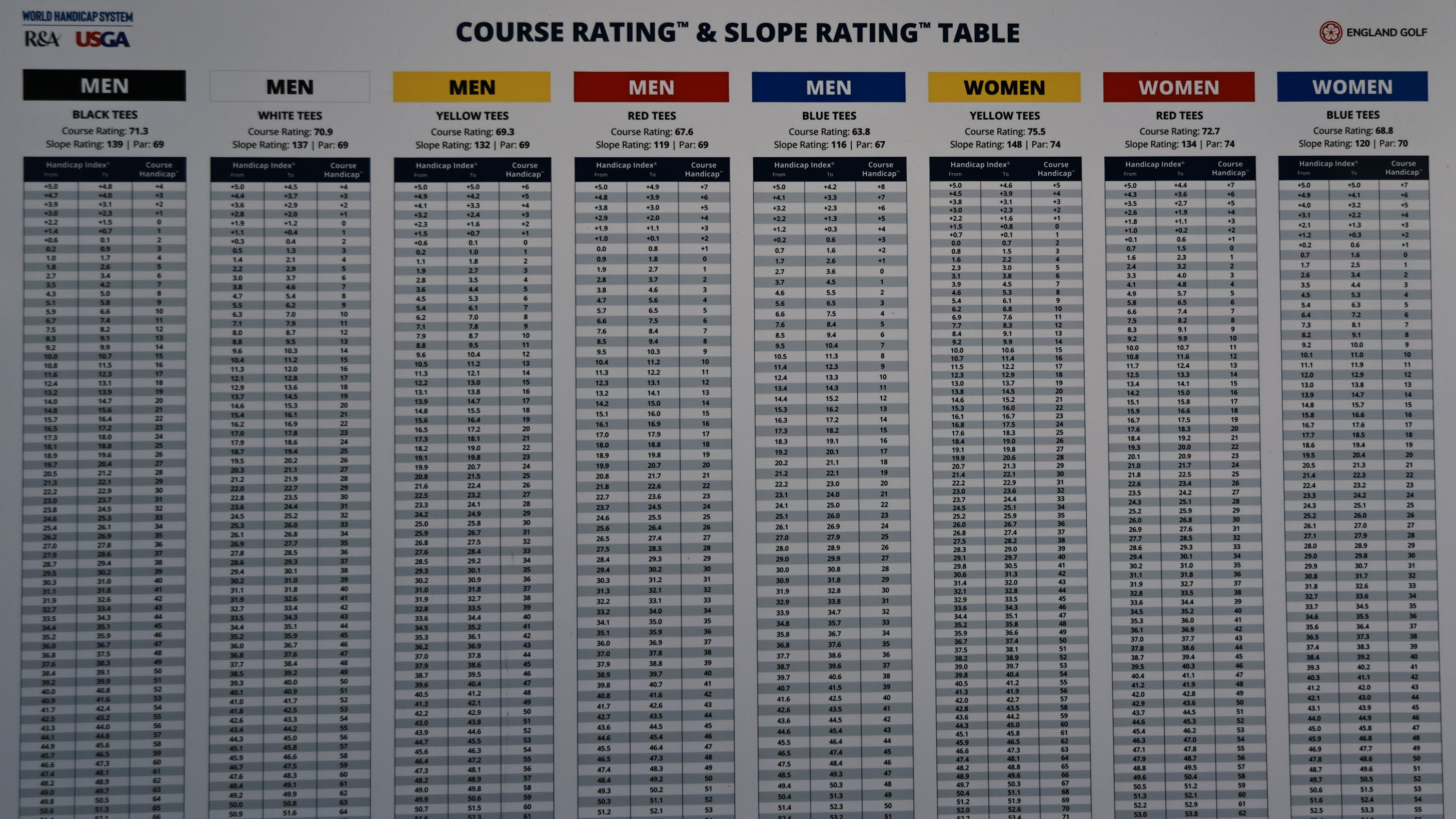My Radical New Handicapping Plan: It's Time To Ditch General Play Scores
Fergus Bisset has some ideas on how the World Handicap System could be improved. Could they work and do you agree with him?


I’ve written quite a bit about my dissatisfaction with the World Handicap System (WHS) over the last couple of years and I’m not going to turn that ground over again.
Well, okay, maybe I’ll just give it a wee rake. Basically, I don’t like the way that I no longer care about my handicap. I used to battle to keep it as low as possible and now I rarely give it a thought.
In the old days of SSS and CSS, making the buffer zone was an achievement to be celebrated with a ticker-tape parade and getting 0.2 off the number beside my name provided a strong case for an impromptu national holiday.
Now, I’m not even sure what my exact handicap index is. I’d have to look it up. In the past, I would have known it as well as my bank pin number.
I’m no pot hunter so I don’t mind that I can no longer win any nett competitions (there’s always someone off a handicap that is too high for their potential thanks to WHS), but I do mind that I don’t feel I have much to play for personally.
I want to care about my handicap again. I wrote last year on four things I’d change about the WHS, and I still agree with the points I made in that article.
I think fewer rounds from your most recent 20 should count towards your average. I suggest best five, perhaps go even further and say best three.
Subscribe to the Golf Monthly newsletter to stay up to date with all the latest tour news, equipment news, reviews, head-to-heads and buyer’s guides from our team of experienced experts.
That would mean the erratic scorers would have less of an advantage – the player currently capable of a rogue nett 59 because the average of their best eight is skewed by too many poor scores, would have a lower index.
I now think we should get rid of general play – there’s too much uncertainty around it. Handicaps should be decided in competition circumstances on set days.
The way you play in regular, non-competition rounds is not the same as the way you play in a counting medal or Stableford. Only competition golf can show what your actual handicap should be.
More than anything else though, I think there needs to be far more emphasis on playing conditions under WHS.

Fergus playing in bad conditions
PCC adjustment
For amateur golfers, a round of level par in flat calm, warm conditions is completely different to a round of level par in lashing rain and 40mph gusts. That needs to be recognised fully when looking at scores for handicap.
The current Playing Conditions Calculation (PCC), although altered to (supposedly) come into effect more readily, just doesn’t come into effect readily enough.
In a medal at my home club a couple of weeks ago, it was blowing a near gale. I played what was probably my best round of the year to shoot level par. The scoring was generally high, but a golfing pal of mine shot an exceptional four-under 65. Well played to him!
Partly because of mine and his “wonder rounds” PCC didn’t kick in. That seemed crazy. The conditions were so challenging and anyone who battled through them successfully deserved recognition.
I wonder if PCC could be based on actual weather rather than the day’s scoring. With the wonders of technology, it’s possible to see what the weather has been doing in any given location at any given time.
It must be possible to harvest that meteorological data and factor it into the handicap calculation. I don’t want my handicap calculation influenced by other players’ performances; I would like it influenced by the actual conditions I have faced.
The other thing I think needs to be looked at is course rating. I know that a huge amount of detail goes into calculating course ratings and each hole is examined in minute detail to produce the course and slope rating.
The process is thorough, but I’m not sure it always delivers the correct numbers. I say this based on my home course. It’s a par 69 of just 5,900 yards. I don’t think too many people would argue when I say it’s not the toughest track.
But the slope rating is 126. To me, that’s way too high. I think it’s that high because if you take each hole individually, they appear tricky. The fairways are narrow, they are well bunkered, the greens are small, there are penalty areas and out of bounds looms on almost every hole.
The thing is though, if you look what surrounds the holes, there’s so much forgiveness. If you spray it wide, you often end up on the fairway of another hole with a clear shot. Also, the rough is non-existent so missing the narrow fairways is no big deal.
You can basically score well at my course without ever finding a fairway! For me, the course and slope ratings don’t reflect that.
I also think the ratings should be more reflective of the prevailing conditions. A course set on a windy stretch of coastline should be rated much tougher than one in a sheltered inland valley, before there’s any consideration of the individual holes.
For me to be interested in my handicap again I want to be playing against more realistic course and slope ratings under a system that adjusts significantly for true playing conditions. Do you agree?
If you have any thoughts on how WHS could be improved, please leave me a comment.
Try your luck at our golf crossword

Fergus is Golf Monthly's resident expert on the history of the game and has written extensively on that subject. He has also worked with Golf Monthly to produce a podcast series. Called 18 Majors: The Golf History Show it offers new and in-depth perspectives on some of the most important moments in golf's long history. You can find all the details about it here.
He is a golf obsessive and 1-handicapper. Growing up in the North East of Scotland, golf runs through his veins and his passion for the sport was bolstered during his time at St Andrews university studying history. He went on to earn a post graduate diploma from the London School of Journalism. Fergus has worked for Golf Monthly since 2004 and has written two books on the game; "Great Golf Debates" together with Jezz Ellwood of Golf Monthly and the history section of "The Ultimate Golf Book" together with Neil Tappin , also of Golf Monthly.
Fergus once shanked a ball from just over Granny Clark's Wynd on the 18th of the Old Course that struck the St Andrews Golf Club and rebounded into the Valley of Sin, from where he saved par. Who says there's no golfing god?
You must confirm your public display name before commenting
Please logout and then login again, you will then be prompted to enter your display name.